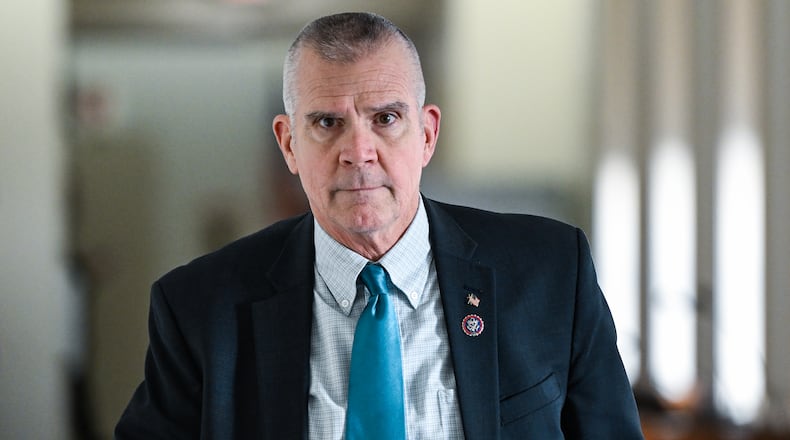The popular claims reimbursement program paid out $1.3 billion in 2022 to cover fuel costs, tolls, parking and in some cases airfare that veterans incur commuting to medical appointments, the VA said.
But problems with a new online system that replaced the kiosks confused and frustrated veterans, according to lawmakers and veterans.
“Personally, I feel the VA wanted to make the [online] reimbursement process more difficult to discourage veterans from using it,” said Marine Corps veteran David Seward, 53, who drives 30 minutes to the Pittsburgh VA Medical Center for medical care. “In my view, [the VA] made everything burdensome for the veteran to avoid spending more money.”
Jon Retzer, assistant national legislative director of Disabled American Veterans, said his organization has urged the VA to make the online process easier for veterans but also to continue providing the service at kiosks and by postal service.
Veterans are reimbursed for their travel expenses to doctor’s appointments for treatment of service-connected injuries and illnesses. Veterans traveling for a compensation or pension exam also can submit their travel costs.
In November 2020, the VA began phasing out the kiosks as it introduced the online program called the Beneficiary Travel Self Service System.
The $36 million web-based system was implemented nationwide in 2023 to speed up reimbursements to veterans. But the new online portal’s complex log-in and navigation system discouraged use, lawmakers said.
“VA blindsided millions of veterans by introducing a complicated and confusing new [online] process,” said Rep. Matt Rosendale, R-Mont., chairman of the House Veterans’ Affairs Committee’s subpanel on technology modernization.
Veterans who are on fixed incomes and who must drive long distances for their care rely on timely delivery of their travel reimbursements, said Rosendale and other lawmakers at a House hearing in the summer on the travel reimbursement system.
“Veterans prefer the kiosks,” said Rep. Sheila Cherfilus-McCormick, D-Fla.
The VA Office of Inspector General stated in a 2023 report that the travel claims process was slower under the automated system, with veterans encountering delays in receiving their reimbursements.
Claims processors were having to create workarounds in the automated system because of problems with how it was validating appointments, trip distances and other factors.
“We have heard feedback from many veterans who prefer the kiosks, and we are exploring ways that we can meet these specific veteran needs,” said Terrence Hayes, the VA press secretary.
The inspector general review faulted the VA for not soliciting veteran feedback as it introduced the new system or providing training to veterans on how to enter claims correctly.
“Consequently, during [the] system rollout, the review team found that some veterans experienced difficulties creating user accounts and lacked needed training on how to use the new system to enter travel claims,” investigators said.
Rosendale said veterans in rural states travel long distances for VA health care and rely on timely reimbursements to cover their fuel costs.
“We need to know that any further changes to this system and the travel reimbursement process will be tested by real veterans and clearly communicated before anything gets pushed out,” he said.
About the Author
